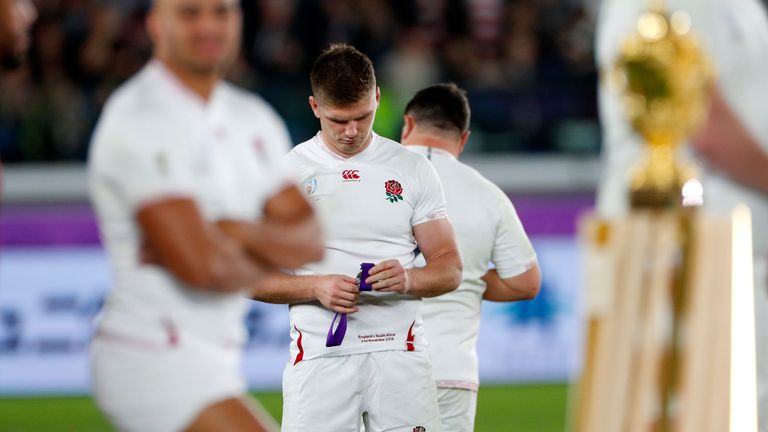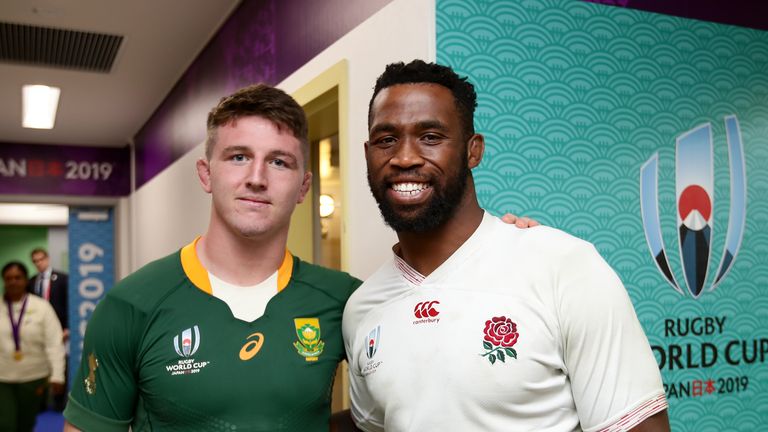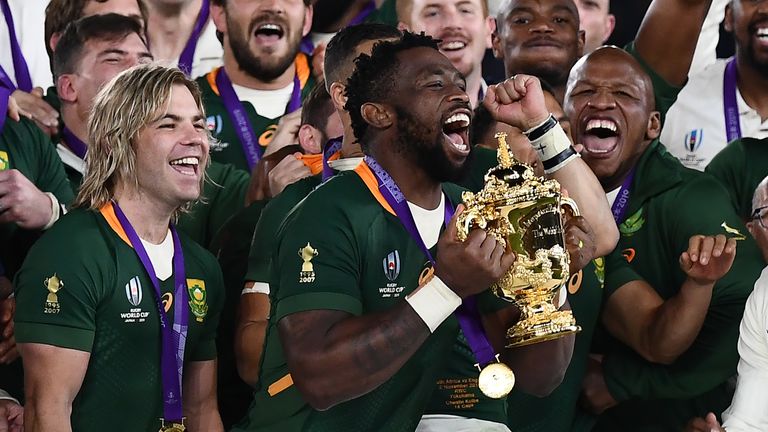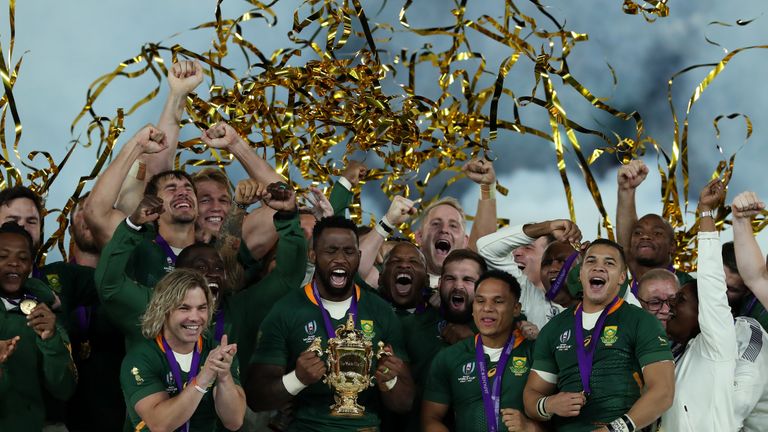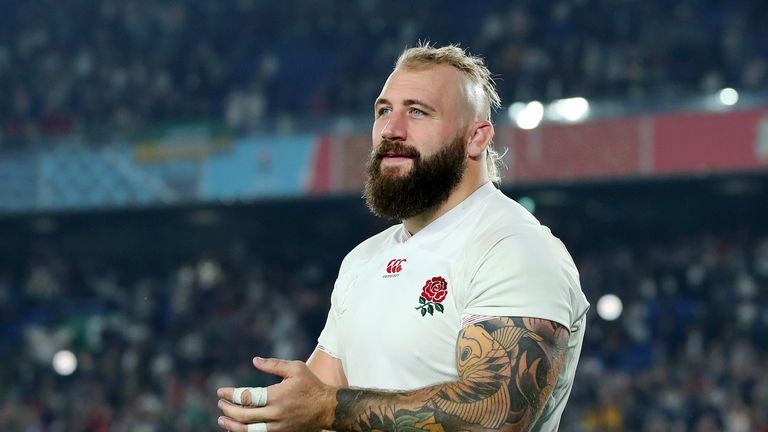England's young side will be bruised, but this was about more than sport
England's youngest ever side will ponder what may have been but it's clear how important lifting the trophy was for South Africa.
Saturday 2 November 2019 19:21, UK
England's young players will likely be bruised by defeat to South Africa in the World Cup final for a long time to come.聽
The team was the youngest ever to play in a final in the professional era with an average age of 27 years and 60 days.
Sam Underhill, the 23-year-old flanker who has impressed so much this tournament with his bulldozer tackles, said earlier this week that they desperately did not want to wait four years to challenge for the Webb Ellis trophy again.
But that is now their cross to bear and they have the long journey back home to muse on what might have been. The team flight departs Tokyo bound for London on Monday morning but before that they have an awards dinner in the Japanese capital where the South Africa team will be recognised for their victory.
25-year-old lock Maro Itoje was so stung by the defeat he refused to wear the runners-up medal and did not disguise his hurt afterwards.
"It was one of the most painful experiences I've had as a rugby player and in my life to be honest," he said.
"We didn't really get into the game, we didn't play the way we wanted to play. The scrum was a frustration but there's lots to learn and we move forward."
Things started to go wrong for England before they even got on the pitch. Their bus to the stadium was stuck in the notoriously awful Tokyo traffic. They were 20 minutes late and consequently had a slightly rushed build-up.
But Eddie Jones insisted that did not contribute to their slow start. Nor did he seek to use the injury to prop Kyle Sinckler in the third minute as an excuse. Sinckler, who has been one of England's stars in Japan, was knocked out cold after a collision with Itoje and was treated on the pitch for several minutes.
"It's a part of the game, mate," Jones said. "I don't think that was a significant factor in the game."
England fans began filing out of the International Stadium Yokohama with minutes still to play when a Springboks victory seemed certain. Some had tear-stained faces, where the St George's flag make-up on their cheeks had begun to run.
"I'm not going to lie, I had a little cry," one teenage girl said. "We just weren't the same team that beat New Zealand in the semi-final, we just didn't have any answers."
It is true that England couldn't cope with the speed, energy and discipline of the South African side, led by their wily coach Rassie Erasmus. They had not expected the defensive line to be quite so impenetrable, either.
Winger Jonny May admitted they were simply beaten by a better side on the day.
"It didn't click," he said.
"We weren't accurate enough. Everything matters in a test match, one little mistake, everything has an impact. You maybe shrink in momentum and belief and they grow. They sustained the pressure and we cracked at the end.
"They got what they deserved but we weren't at our best and that's disappointing."
Joe Marler, 28, came out of international retirement after being named in the England training squad for the World Cup but remained measured after the game, saying he had no regrets.
"Going out and enjoying yourself helps give you perspective, win or lose we are playing a game we love," he said.
"Yes I would've loved to have won. There is a burning desire in this group to win and call yourself world champions but South Africa deserved it."
For South Africa it is a victory with great social and cultural significance. Captain Siya Kolisi lifting the Webb Ellis trophy will be one of the defining images in rugby history, the country's first black captain leading them to glory on the biggest stage.
From the townships to the top of the world, some stories are bigger than sport.

